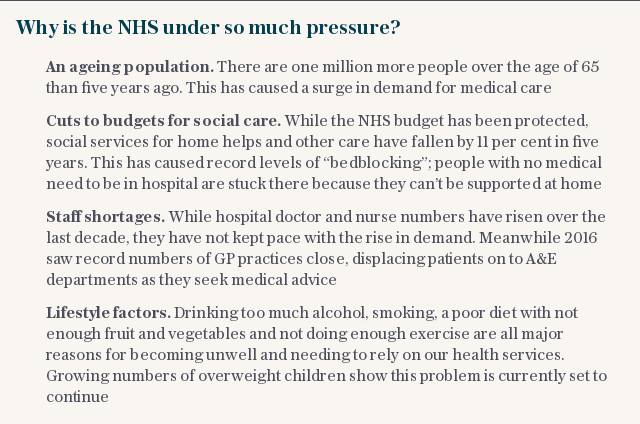Jeremy Hunt says elderly people with dementia must not face 'punitive' care costs as he hints at cap

Elderly people with dementia must not be hit with "unfair" and "punitive" care costs, Jeremy Hunt has said in first major intervention since the Conservative election debacle.
The Health Secretary suggested that he wants a cap on care costs and insisted that the Conservatives must face up to the "difficult questions" about social care funding.
Theresa May was forced to abandon a flagship manifesto policy on social care costs during the election after it failed to include an overall cap on social care costs. She subsequently said that there must be an "absolute limit" on care costs.
In a speech at the Social Care Workers conference in London, Mr Hunt said that there must be "risk-pooling" to prevent people's financial well-being in old age from being defined by the "lottery of which illness they get".
He said: "But the way our current charging system operates is far from fair. This is particularly true for families faced with the randomness and unpredictability of care, and the punitive consequences that can come from developing certain conditions over others.
"If you develop dementia and require long-term residential care, you are likely to have to use a significant chunk of your savings and the equity in your home to pay for care. But if you require long-term treatment for cancer you won’t face anything like the same cost.
"So people’s financial well-being in old age ends up defined less by their industry and service during their working lives, and more by the lottery of which illness they get.
"We therefore need a system that includes an element of risk-pooling and, as the Prime Minister promised in the election campaign, we will bring forward ideas as to how to do this and what the potential costs might be of doing so in the Green Paper."
Mr Hunt said that social workers are struggling to cope with "fragmented services" that are coming under "increasing pressure", adding that funding for the care system is "fragile".
He said: “Too many people experience care that is not of the quality we would all want for our own mum or dad. "We need a relentless and unswerving focus on providing the highest standards of care – whatever a person’s age or condition.

"This means a commitment to tackle poor care with minimum standards enforced throughout the system so that those using social care services are always kept safe and treated with the highest standards of dignity and compassion.
“Resolving this will take time. But that must not be an excuse to put off necessary reforms. Nor must it delay the debate we need to have with the public about where the funding for social care in the future should come from – so the Green Paper will jump-start this vital debate.”
Mr Hunt added: “Innovation will be central to all of these principles: we will not succeed unless the systems we establish embrace the changes in technology and medicine that are profoundly reshaping our world.
“By reforming the system in line with these principles everyone – whatever their age – can be confident in our care and support system. Confident that they will be in control, confident that they will have quality care and confident that wider society will support them.”

 Yahoo News
Yahoo News 
